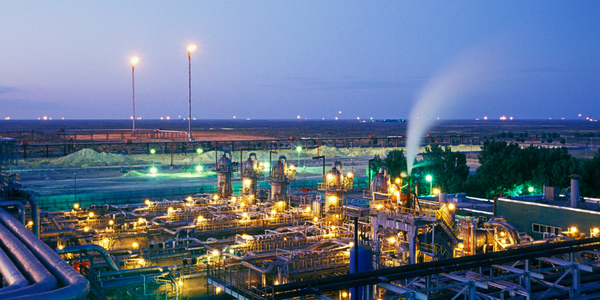Technology Category
- Sensors - Gas Sensors
- Sensors - Utility Meters
Applicable Industries
- Finance & Insurance
- Oil & Gas
Use Cases
- Continuous Emission Monitoring Systems
- Time Sensitive Networking
Services
- System Integration
About The Customer
Wyld is a leading cannabis edibles brand founded in 2016. The company was started by three college friends over a two-burner stove in a tiny farm building in Central Oregon and has since grown to become America’s best-selling cannabis edibles brand. Wyld employs over 800 people and operates across North America. In 2021, Wyld’s revenue was USD 106M. The company is committed to sustainability and taking responsibility for its business-related impacts on climate change. A significant milestone in their sustainability journey was becoming a Climate Neutral Certified brand through climateneutral.org in 2022.
The Challenge
Wyld, a leading cannabis edibles brand, was committed to taking responsibility for its business-related impacts on climate change. As part of their sustainability journey, they aimed to become a Climate Neutral Certified brand. In 2021, Wyld began the process of developing its base year greenhouse gas assessment. Calculating Scope 1 and 2 emissions, which are direct emissions from owned or controlled sources and indirect emissions from the generation of purchased energy respectively, were straightforward for a company of its size. However, when it came to calculating Scope 3 emissions, which are all other indirect emissions that occur in a company's value chain, they realized that it was going to be a much more time and resource-intensive process. Wyld was committed to approaching its carbon accounting based on the Greenhouse Gas Protocol’s standards and knew that it would need assistance with calculating all relevant Scope 3 categories.
The Solution
To address this challenge, Wyld partnered with Ecometrica, a company specializing in sustainability reporting software. Ecometrica worked with Wyld to quantify its Scope 3 indirect emissions such as those associated with purchased goods, business travel, distribution, waste generated in operations, employee commuting, and more. The main advantages of using Ecometrica’s software were time-saving from using the efficient bulk data upload option, automatically calculating the percentage of data uncertainty which added transparency to the calculations, quick turnaround on support requests from a team of subject matter experts, the ability to apply both weight-based and spend-based emission factors from Ecometrica’s extensive database, and being able to output their final report in an audit-ready format for third-party review. This solution allowed Wyld to accurately calculate and report their Scope 3 emissions, a crucial step in their journey towards climate neutrality.
Operational Impact

Case Study missing?
Start adding your own!
Register with your work email and create a new case study profile for your business.
Related Case Studies.

Case Study
Taking Oil and Gas Exploration to the Next Level
DownUnder GeoSolutions (DUG) wanted to increase computing performance by 5 to 10 times to improve seismic processing. The solution must build on current architecture software investments without sacrificing existing software and scale computing without scaling IT infrastructure costs.

Case Study
Remote Wellhead Monitoring
Each wellhead was equipped with various sensors and meters that needed to be monitored and controlled from a central HMI, often miles away from the assets in the field. Redundant solar and wind generators were installed at each wellhead to support the electrical needs of the pumpstations, temperature meters, cameras, and cellular modules. In addition to asset management and remote control capabilities, data logging for remote surveillance and alarm notifications was a key demand from the customer. Terra Ferma’s solution needed to be power efficient, reliable, and capable of supporting high-bandwidth data-feeds. They needed a multi-link cellular connection to a central server that sustained reliable and redundant monitoring and control of flow meters, temperature sensors, power supply, and event-logging; including video and image files. This open-standard network needed to interface with the existing SCADA and proprietary network management software.

Case Study
Refinery Saves Over $700,000 with Smart Wireless
One of the largest petroleum refineries in the world is equipped to refine various types of crude oil and manufacture various grades of fuel from motor gasoline to Aviation Turbine Fuel. Due to wear and tear, eight hydrogen valves in each refinery were leaking, and each cost $1800 per ton of hydrogen vented. The plant also had leakage on nearly 30 flare control hydrocarbon valves. The refinery wanted a continuous, online monitoring system that could catch leaks early, minimize hydrogen and hydrocarbon production losses, and improve safety for maintenance.










